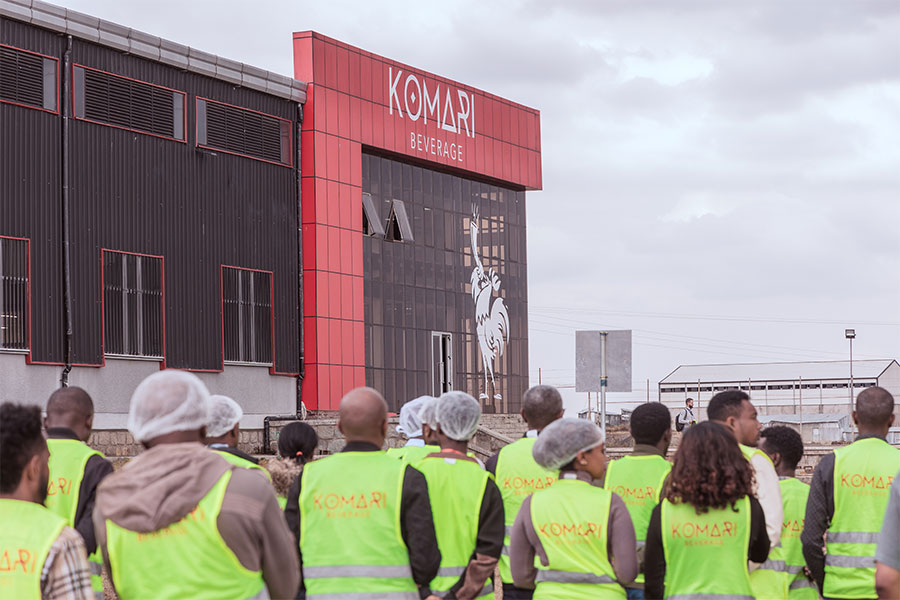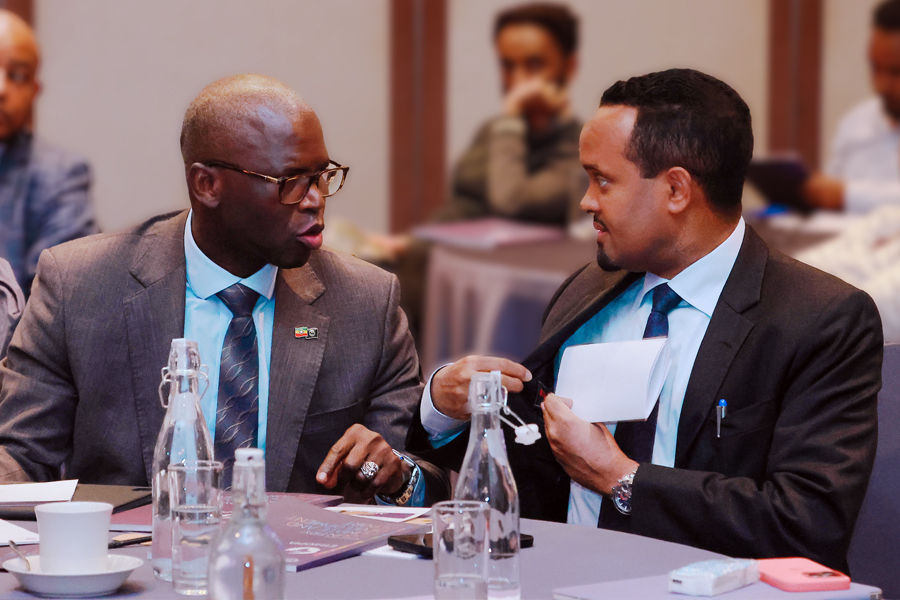
Commentaries | Sep 04,2021
Apr 30 , 2022
By Bjorn Lomborg
Over the past decade, the global elite's obsession with climate change has taken away from the many other major problems facing the planet - shown most dramatically by the invasion of Ukraine. Western European leaders should have spent the past decade diversifying energy sources and expanding shale gas, instead of shutting down nuclear plants and becoming scarily reliant on Russia. But the looming war is far from the only thing they have managed to ignore.
The biggest task facing humanity today remains lifting most of the world out of abject poverty. This can only happen by providing poor countries with comprehensive, reliable energy sources. That is how the rich world became prosperous, and it is how China lifted almost a billion out of poverty. Yet, while the world's rich countries are overwhelmingly powered by fossil fuels, the elite has worked hard to make these energy sources both more expensive and less available for the world's poorest.
Right now, we are still recovering from the worst pandemic in a century. Inflation, supply shortages, and possibly even recession looms over the global economy. Autocracies are reasserting themselves, while food crises are already being experienced by the most vulnerable. Tuberculosis, malaria and malnutrition - each effectively handled in the rich world - still claim millions of lives each year across poor countries.
Yet major donors and development organisations have become increasingly focused on climate solutions instead. One month after Ukraine was invaded, the head of the United Nations - an organisation focused on ensuring world peace - was instead warning about "climate catastrophe," and the "mutually assured destruction" that fossil fuel 'addiction' could cause.
It would be an exaggeration to say that while real threats were mounting, the rich world was tinkering with solar panels and banning plastic straws. But only a small exaggeration.
So how have the elites managed to get things so wrong?
One reason is that for years, the media has portrayed climate change impacts as horrendous. Today, almost every natural disaster routinely gets blamed on the climate crisis, with every new hurricane held up as another exhibit of human folly. Yet, hurricanes killed many more people in the past. A major scientific paper from last month documents "decreasing trends" in global hurricane frequency and strength. The data shows that last year the world experienced fewer hurricanes than ever before in the satellite era, and their combined strength was one of the lowest.
The real impact of climate change is much more nuanced. The UN climate panel of scientists finds that a warmer world will mean fewer (good) but stronger (worse) hurricanes. In total, this will increase damages (bad), but because the world will also get richer and more resilient, relative damages will keep declining, just slightly more slowly. This is a problem that we must not ignore. But it is far from a catastrophe. Global climate damage in percent of GDP keeps declining and climate disaster deaths have dropped 99pc in a century.
For the best sense of what to really expect from a warming planet, we should turn to the damage estimates from the models used by President Biden's Administration, and President Obama's before that to set climate policy. This research reveals that the entire global cost of climate change - not just to economies, but in every sense - will be equivalent to less than a four percent hit to GDP by the end of the century.
Remember, by the UN's own estimates the average person in 2100 will be 450pc as rich as today. Global warming means she will 'only' be 434pc as rich. This is a problem, but - contrary to the histrionics - far from catastrophic.
For wealthy countries, the narrow focus on climate objectives undermines future prosperity. The world already spends more than half a trillion dollars annually on climate policies, while rich world government spending on innovation in areas such as healthcare, space, defense, agriculture and science has been declining as a percentage of GDP over recent decades. This investment underpins our future growth. Together with a stagnant or declining education performance, rich world income has almost stalled this century. Compare this to China, where innovation spending is up 50pc, education is rapidly improving, and average incomes have increased five-fold since 2000.
Alarmingly, despite extraordinary focus, we are failing even to address climate change itself. Last year saw the largest CO2 emissions ever.
Earlier this year, the world's elite gathered for the World Economic Forum and were asked to name "the most severe risks on a global scale over the next 10 years." They absurdly chose "climate action failure" - right before Russia started bombing Chornobyl and Kyiv.
The world has many challenges, not just the ones that get the most media attention. Climate should be tackled more effectively by funding R&D in green energy sources so they eventually outcompete fossil fuels. We need to confront authoritarian expansionism in Ukraine and elsewhere. And to ensure long-term prosperity, the world needs more and cheaper energy, better education and more innovation. We need our perspective back to overcome the elitist hyperbole on climate change.
PUBLISHED ON
Apr 30,2022 [ VOL
23 , NO
1148]


Commentaries | Sep 04,2021

Commentaries | Jan 05,2019

Advertorials | Feb 26,2024

Viewpoints | Jun 07,2025

Commentaries | Jun 10,2023

Radar | Sep 02,2023

Viewpoints | Dec 16,2023

Fortune News | Mar 02,2024

Viewpoints | Dec 30,2023

Commentaries | Apr 30,2022

My Opinion | 131548 Views | Aug 14,2021

My Opinion | 127903 Views | Aug 21,2021

My Opinion | 125879 Views | Sep 10,2021

My Opinion | 123510 Views | Aug 07,2021

Dec 22 , 2024 . By TIZITA SHEWAFERAW
Charged with transforming colossal state-owned enterprises into modern and competitiv...

Aug 18 , 2024 . By AKSAH ITALO
Although predictable Yonas Zerihun's job in the ride-hailing service is not immune to...

Jul 28 , 2024 . By TIZITA SHEWAFERAW
Unhabitual, perhaps too many, Samuel Gebreyohannes, 38, used to occasionally enjoy a couple of beers at breakfast. However, he recently swit...

Jul 13 , 2024 . By AKSAH ITALO
Investors who rely on tractors, trucks, and field vehicles for commuting, transporting commodities, and f...

Jun 28 , 2025
Meseret Damtie, the assertive auditor general, has never been shy about naming names...

Jun 21 , 2025
A well-worn adage says, “Budget is not destiny, but it is direction.” Examining t...

Jun 14 , 2025
Yet again, the Horn of Africa is bracing for trouble. A region already frayed by wars...

Jun 7 , 2025
Few promises shine brighter in Addis Abeba than the pledge of a roof for every family...

Jun 29 , 2025
Addis Abeba's first rains have coincided with a sweeping rise in private school tuition, prompting the city's education...

Jun 29 , 2025 . By BEZAWIT HULUAGER
Central Bank Governor Mamo Mihretu claimed a bold reconfiguration of monetary policy...

Jun 29 , 2025 . By BEZAWIT HULUAGER
The federal government is betting on a sweeping overhaul of the driver licensing regi...

Jun 29 , 2025 . By NAHOM AYELE
Gadaa Bank has listed 1.2 million shares on the Ethiopian Securities Exchange (ESX),...